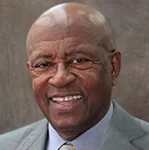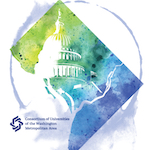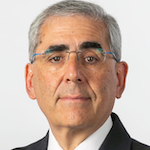 Doug Swanson |
With each passing year, the ability to work effectively in public relations demands more of PR professionals. As we know, just being able to write a cogent news release or call a press conference won’t get anybody a job or allow them to keep it. Today’s PR pros need to be brand management experts with a sound grasp of social media analytics, creative skills, multicultural awareness and myriad of other talents that weren’t in any PR job description a few years ago.
Many of America’s colleges and universities are recognizing the increased expectations and responding with stronger career preparation for PR undergraduates. A key part of that preparation is the student-run PR agency.
The student-run agency is a business that operates within an academic program. The agency replaces the old fashioned “read a book, listen to a lecture and take a test” model of learning with real-world clients and situations, marketplace challenges, fast deadlines and no easy answers. It puts PR students in the driver’s seat. The resulting performance and knowledge gain exceeds anything that can be done in a classroom.
A survey of 200 employers by the National Association of Colleges and Employers in 2016 found the five most sought-after skills in all fields were leadership, teamwork, written communication, problem-solving and verbal communication. These are skills university PR agency students develop every day in interactions with marketplace clients.
There were just a handful of student agencies in the 1970s and ’80s, and at that time they were somewhat of a novelty. That’s no longer the case.
The population of student agencies has exploded in this decade, going from 83 agencies identified in a 2011 search by Elon University professor Lee Bush to 158 student agencies. More new agencies are planned or being launched.
PRactical ADvantage Communications, our agency at Cal State Fullerton, was established in 2011 and has already graduated more than 650 students. Our students transition from campus into the workplace with campaign work for clients such as the Motor Press Guild, Cox Communications, the City of Anaheim and Miracles for Kids as well as for smaller local businesses and nonprofits.
The advance of digital technology has given even student-run agencies equal footing with larger and more seasoned marketplace competitors. With a small team of scrappy digital native students armed with smart phones, it’s possible to run circles around marketplace agencies that don’t know or can’t figure out how technology can solve problems.
In the student agency workplace, the most significant of all the important and potentially long-lasting skills students master is mentoring. Through peer-to-peer mentoring, agency students learn from each other what it takes to be successful in PR. The left-brain strategic planning types sit down with the right-brain creatives, and before you know it, everybody’s working together at the same level of expertise.
Agency students also apply reverse mentoring — the process whereby a less experienced and typically younger person teaches new skills to a more senior colleague. Reverse mentoring happens in student agencies when a 20-something PR student engages with a 50-something client, showing the client how to open a pop-up shop or perform social media analytics. Reverse mentoring is cutting-edge, cool stuff that corporate America takes notice of, and it’s happening in student agencies every day.
Student agencies also give a lot of attention to business-focused interpersonal skills that may not be attended to anywhere else in a typical undergraduate mass communication curriculum. Agency students learn the importance of written and oral communication skills in a business context so they can communicate effectively and persuasively with work teams on the inside, and vendors and suppliers on the outside.
We know these skills are being developed because student performance in the agency is evaluated at several different levels. Typically, students engage in regular review and critique of each other’s individual and collective work. The agency supervisor does this, too. The evaluation that carries perhaps the most weight is that of the client. After all, the student agency is a business and many agencies charge clients for the work performed. Even if the client is taken on pro bono, the work must still be top quality.
Of course, there are still challenges that many of us who oversee student agencies are working on. At the top of the list is understanding our Generation Z students because, to be honest, it’s a whole new ballgame. Many college students today fall into Gen Z, the demographic group of 73 million Americans born between the mid-1990s and early 2000s. Gen Zers are whip smart and culturally astute. They’re tech savvy multi-taskers who developed keyboarding skills in preschool and have never known a world without Internet.
At the same time, although Gen Zers can easily tackle subjective tasks, they struggle to identify soft skill learning and recognize its importance. In other words, following a “to do” list is easy. Solving problems with no clear paths to a solution can be frightening. Those of us who oversee student agencies are working hard to get in synch with Gen Z and maximize their smarts and talents in a PR context.
There are still many college and university PR programs that don’t have student agencies. Admittedly, launching an agency takes a lot of thoughtful planning. Not every faculty member has the skills and experience to balance the multitude of occasionally conflicting responsibilities involved with running a business in an academic unit. Not every program has the resources to dedicate to a complex operation of this type.
But academic programs in PR that don’t pursue establishing a student-run agency are really missing out. Educating PR students without providing them with a “real world experience” laboratory is shamefully out of touch with reality. In early 2013, the Higher Education Research Institute reported that 88 percent of incoming university freshmen said they hoped a degree would allow them “to get a better job.” How are the PR students who want that job going to be able to land it without an opportunity like a student-run agency to build the better skills that will land them that job? Students who complete a program that doesn’t include real-world PR learning are unprepared for marketplace-relevant tasks because they’ve never faced any.
Perhaps in response to public recognition of graduates’ lack of work preparation, recent news stories have described how dozens of postgraduate “boot camps” and “bridge programs” have sprung up. These programs allow recent college graduates to learn the skills they did not master in the university. PR students who have the opportunity to take advantage of a student-run agency would not be likely to need additional training that adds to their student loan debt and further slows their transition to the workplace.
Now that you know about this valuable, growing segment of higher education in PR, here’s what you can do next: Seek out the university student-run agencies in your area. They’re hungry to interact with professionals, and most would welcome you to visit, meet their student teams, learn about their clients and critique their projects.
The typical student agency is greatly limited in its growth by the supervising faculty member’s time, the number and quality of clients available and the dedicated floor space the campus can give for agency operations. It’s tough to grow the agency because so many variables have to come together to make it happen. So, that’s another reason to seek out and be involved in a university student-run agency. Help them find the path to growth so that the agency can expand, student enrollment can increase and more students can benefit.
Last but not least, look to student-run agencies first when you’re able to take on an intern or entry-level hire. Just as agencies want your interaction, they also want you to meet and consider hiring their talented students.
Agency students don’t need “driver education.” They’re ready to hit the road right now.
***
Doug Swanson, Ed.D APR is professor of communications at California State University, Fullerton. He’s founder of CSUF’s student-run agency, PRactical ADvantage Communications.


 Notre Dame hires Pedro Ribeiro, who most recently served as SVP for communications and PA at the Association of American Universities, as VP for PA and communications, effective Oct. 2.
Notre Dame hires Pedro Ribeiro, who most recently served as SVP for communications and PA at the Association of American Universities, as VP for PA and communications, effective Oct. 2. Former Brooklyn Congressman Edolphus Towns represents 2U Inc. the online higher education company that has partnered with Morehouse College on the Morehouse Online offering.
Former Brooklyn Congressman Edolphus Towns represents 2U Inc. the online higher education company that has partnered with Morehouse College on the Morehouse Online offering. Mica Stark, chief communications officer at the University of New Hampshire, has joined Brodeur Partners to bolster the Boston-based firm’s higher education offering.
Mica Stark, chief communications officer at the University of New Hampshire, has joined Brodeur Partners to bolster the Boston-based firm’s higher education offering. Finn Partners has signed on to provide earned media and marketing support for the Consortium of Universities of the Washington Metropolitan Area on its 120 Initiative effort to address gun violence.
Finn Partners has signed on to provide earned media and marketing support for the Consortium of Universities of the Washington Metropolitan Area on its 120 Initiative effort to address gun violence. Brunswick Group has recruited Michael Schoenfeld, VP for public affairs, government relations & chief communications officer at Duke University.
Brunswick Group has recruited Michael Schoenfeld, VP for public affairs, government relations & chief communications officer at Duke University.


 Have a comment? Send it to
Have a comment? Send it to 
No comments have been submitted for this story yet.